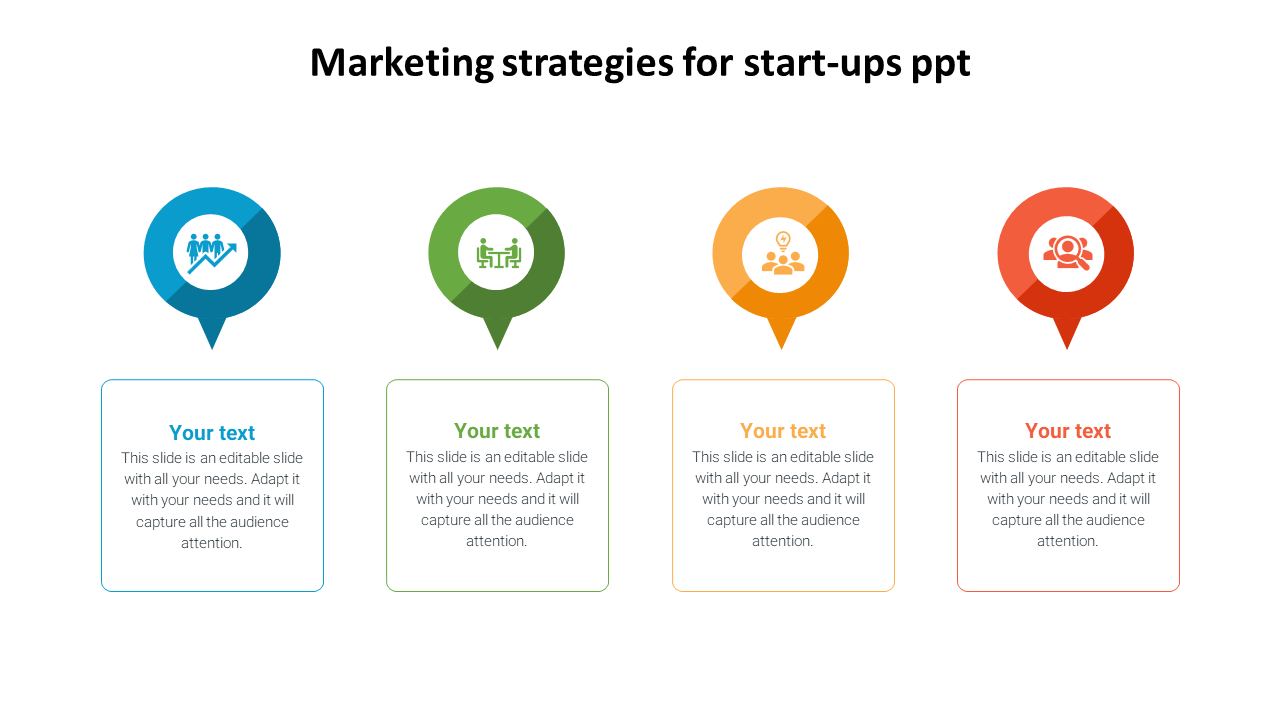Introduction to Marketing Strategies for Startups
In today’s hyper-competitive environment, startups face unique challenges when it comes to marketing their products or services. Implementing an effective marketing strategy can mean the difference between success and stagnation for new businesses. While traditional marketing methods still hold value, the digital landscape offers startups unparalleled opportunities to reach and engage with their target audience. As a startup, leveraging digital marketing techniques is crucial for establishing your brand presence and driving growth.
Startups, unlike established companies, often operate with limited resources, making it imperative to invest strategically in marketing efforts. Digitally-focused marketing not only allows startups to control their budget more effectively but also facilitates precise targeting and measurable results. This, in turn, empowers startups to test, optimize, and scale their marketing campaigns swiftly.
A well-devised marketing plan for a startup typically includes:
- Identifying Your Target Audience: Understanding the demographics, preferences, and behaviors of your potential customers is foundational. Knowing who your customers are helps tailor your messaging to meet their specific needs.
- Adopting the Right Tools and Platforms: Leveraging the power of marketing automation tools and platforms such as social media, email, and search engines can amplify your marketing efforts without substantial financial expenditure.
- Focusing on Content Marketing: Establish your startup as a thought leader in your industry through valuable and relevant content delivery. Creating engaging blog posts, infographics, and video content not only boosts SEO (Search Engine Optimization) but also builds trust and authority within your market segment. For further insights, check out content marketing basics.
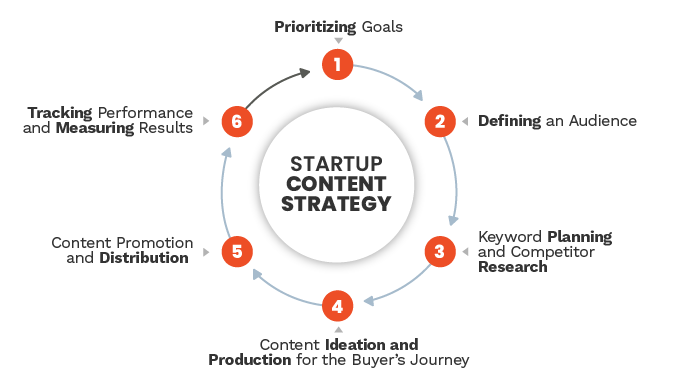
- Engaging in Collaboration and Networking: Partner with other businesses, influencers, or community members to expand your reach. Collaborative campaigns or co-branded content can tap into audiences you might not easily access on your own.
By focusing on these strategies, startups can create a strong marketing foundation that not only enhances initial growth but also establishes a sustainable trajectory for future success. As we explore further into the importance and intricacies of digital marketing for startups, you will discover actionable insights and practical tools that can propel your new business to new heights.
The Importance of Digital Marketing for Startups
In today’s rapidly evolving digital landscape, digital marketing is not just an option but a necessity for startups striving to establish a significant market presence. While traditional marketing strategies still have their place, the reach and effectiveness of digital tools offer unmatched advantages for new businesses looking to make a mark in crowded spaces.
Understanding Digital Marketing Channels
Startups must navigate a plethora of digital marketing channels to effectively connect with their target audience. These channels include:
- Search Engine Optimization (SEO): SEO is the backbone of online visibility, allowing your website to rank higher in search engine results. By optimizing your website’s content with relevant keywords, like those related to your industry or niche, you can attract more organic traffic. Learn more about SEO strategies at Moz.
-
Social Media Marketing: Platforms such as Facebook, Instagram, and LinkedIn provide startups with direct access to a diverse audience base, each with unique engagement opportunities. It’s vital to choose platforms that align with your audience’s preferences and behavior.
-
Email Marketing: A cost-effective channel for engaging customers through personalized communications. Segmented email campaigns foster a deeper connection with potential and existing clients.
-
Content Marketing: This involves creating valuable, relevant content — such as blog posts, videos, or infographics — to engage your audience and promote brand awareness.
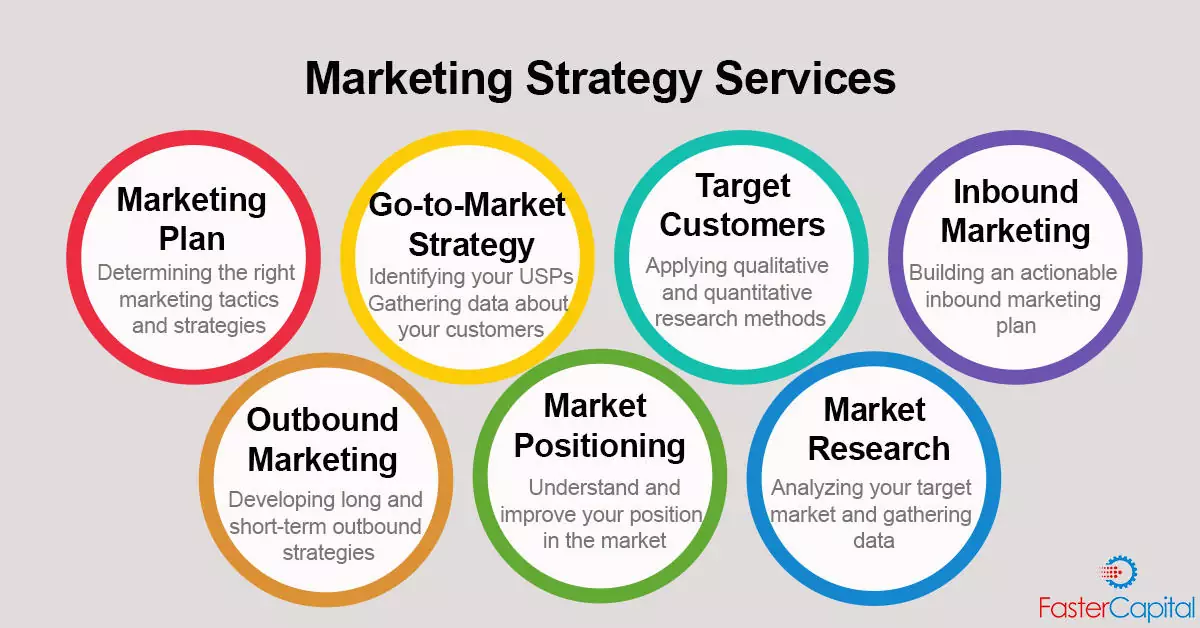
Focusing on the right mix of these channels helps startups maximize reach and conversion potential, tailoring efforts to match specific business goals and audience needs.
Setting Up Your Digital Marketing Strategy
Developing a robust digital marketing strategy involves several key steps:
- Define Your Goals: Clearly outline what you aim to achieve with your digital marketing efforts. Is it brand awareness, lead generation, or customer retention? Having specific, measurable objectives is crucial.
-
Identify Target Audience: A profound understanding of your target audience’s demographics, interests, and behaviors allows for more focused and effective marketing campaigns.
-
Choose the Right Tools and Technologies: Leverage CRM platforms, analytics tools, and marketing automation software to streamline your efforts and enhance campaign performance.
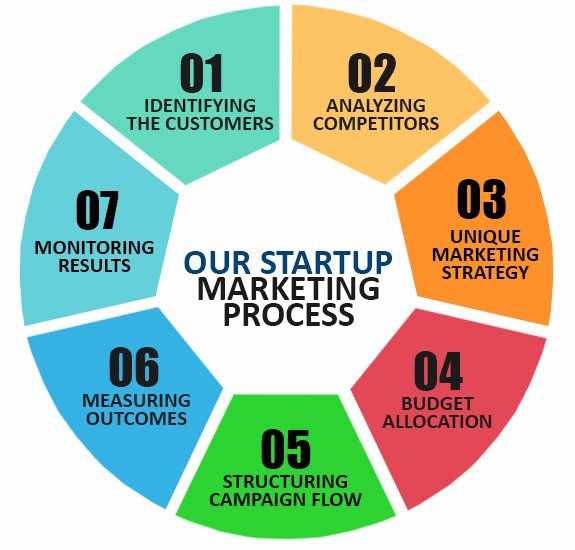
-
Craft Compelling Content: Develop content that resonates with your audience, addressing their pain points and needs while showcasing your brand’s unique value proposition.
-
Monitor and Adjust Your Strategy: Regularly review your digital marketing metrics to gauge success and make informed adjustments. Key metrics include website traffic, conversion rates, and social media engagement levels.
Emphasizing a comprehensive strategy ensures that your startup’s digital marketing efforts align with overall business objectives, setting the foundation for sustainable growth and success.
Engaging in digital marketing is akin to embarking on a continuous journey of learning and adaptation. With the digital marketing landscape constantly evolving, startups must remain agile and willing to innovate as they strive for excellence in the marketplace.
Leveraging Social Media Engagement
Social media has become a powerful tool for startups, allowing them to connect directly with their audience and build a strong community around their brand. To fully capitalize on these opportunities, it is crucial to strategically navigate and engage on social media platforms. This involves selecting the most effective platforms for your startup and crafting compelling content that resonates with your target audience.
Choosing the Right Social Media Platforms
Selecting the right social media platforms is foundational for maximizing your marketing impact. Overwhelmingly, platforms such as Facebook, Instagram, Twitter, LinkedIn, and TikTok offer different advantages depending on your target demographic and nature of your business. For example, while Instagram and TikTok are optimal for visually engaging content catering to younger demographics, LinkedIn is more suitable for B2B interactions and professional networking.
Here’s how you can decide the best platforms for your startup:
- Identify Your Audience: Drill down on where your potential customers are spending their time online. This can be guided by demographics, interests, and behaviors, allowing you to pinpoint the platforms that will yield the greatest engagement.
- Assess Platform Strengths: Each platform has unique features—visual storytelling on Instagram, the professional network of LinkedIn, or the real-time interactions on Twitter.
- Evaluate Competition: Study how your competitors are using various platforms. This not only gives insight into what works but also opens opportunities to differentiate your strategy.
For further insights into social media platform demographics, explore this comprehensive guide by Sprout Social.
Creating Engaging Content for Your Audience
Content is the backbone of effective social media engagement. Crafting messages that resonate with your audience ensures that your brand stays top-of-mind and fosters a loyal community.
To keep your content strategy effective:
- Understand Your Audience: Focus on creating relevant, valuable content tailored to your audience’s interests and problems. Use social media insights to refine and customize your content.
- Diversify Content Formats: Experiment with various types of content – from blog posts, infographics, and videos to stories and live streams. This diversity keeps your audience engaged and caters to different preferences.
- Engage Actively: Foster dialogue by prompting discussions. Craft posts that encourage comments, shares, and direct interactions. Authentic engagement helps you build relationships rather than just numbers.
- Leverage User-Generated Content: Encourage satisfied customers to share their experiences. User-generated content is not only cost-effective but also incredibly persuasive, as it builds trust and authenticity.
By focusing extensively on audience and content nuances, startups can transform social media from a promotional space into a thriving community that supports their brand objectives.
Branding Techniques That Resonate with Target Audiences
Defining Your Brand Identity
Establishing a strong brand identity is a critical step for startups looking to create a lasting impression in the digital marketplace. Your brand identity encompasses the visual and verbal representation of your business, including your logo, color scheme, messaging, and overall tone. To effectively define your brand identity, it is vital to conduct in-depth market research to understand the needs, preferences, and behaviors of your target audience. This research will provide valuable insights into how your brand can differentiate itself from competitors and create a compelling narrative that resonates with your audience.
Create a cohesive brand guideline that documents the key elements of your brand identity. This ensures consistency across all your digital channels—from your website to social media platforms. Remember, a well-defined brand identity not only grabs attention but builds trust and credibility with your audience.
Building Brand Loyalty
Brand loyalty is the holy grail of successful marketing strategies. For startups, creating a loyal customer base starts with delivering exceptional value and a memorable customer experience. One way to build brand loyalty is by developing a robust customer engagement strategy. Utilize your digital platforms to interact directly with your audience, addressing their queries, gathering feedback, and genuinely showing appreciation for their support.
To deepen brand loyalty, focus on personalization in your communication. Tailored messaging makes customers feel valued and acknowledged as individuals, fostering a strong emotional connection with your brand. Additionally, leverage content marketing to continually provide your audience with insightful and useful information, which establishes your startup as an authority in your niche.
In the context of enhancing loyalty, consider implementing a customer loyalty program. Such programs incentivize repeat business and reward your most committed customers, fostering an ongoing relationship. Forbes has an informative article highlighting how successful brands leverage loyalty programs to maintain and grow customer connections.
Ultimately, branding that resonates with your target audience can provide your startup with a competitive edge in a crowded digital arena, propelling your business towards sustained success.
Combining Traditional and Digital Strategies
Benefits of a Multi-Channel Approach
In today’s rapidly evolving marketplace, leveraging a multi-channel approach is essential for startups aiming to create a significant impact. By integrating both traditional and digital marketing strategies, startups can tap into a wider range of opportunities to engage with their target audience effectively.
1. Broader Audience Reach
Combining offline and online marketing channels allows startups to reach a larger audience. While digital marketing can target users based on specific interests and behaviors online, traditional methods, such as print advertising or events, can attract local customers and those who prefer physical interactions. This synergy ensures that no potential customer is overlooked.
2. Enhanced Customer Engagement
Different marketing channels provide various touchpoints where customers can interact with your brand. A multi-channel approach ensures customers can engage with your business through whichever channel they find most comfortable—be it a vibrant social media presence or a well-organized local event. This versatility can lead to increased brand interaction and loyalty.
3. Increased Brand Awareness and Recognition
By being present across multiple platforms, startups can strengthen their brand awareness. Consistent messaging across both digital and traditional mediums ensures that your brand remains at the forefront of consumers’ minds. This omnipresence not only aids in developing a recognizable brand but also in establishing trust and credibility.
4. Cost-Effectiveness and ROI
A diversified marketing strategy can also lead to more cost-effective campaigns. By analyzing which channels provide the best returns, startups can allocate resources more efficiently. For instance, investing in low-cost digital advertising alongside selective traditional methods can optimize budget, leading to a better ROI.
5. Collecting Comprehensive Customer Data
Utilizing both digital and traditional channels enables startups to gather rich and varied customer data, offering deeper insights into consumer preferences and behaviors. While digital channels offer precise metrics and real-time data, traditional methods can provide qualitative insights through direct customer feedback and interaction. Learn more about the benefits of cross-channel marketing from industry experts like Salesforce.
By embracing a multi-channel approach, startups position themselves to adapt quickly to market changes, cater to diverse customer needs, and ultimately build a robust marketing presence. This strategy not only enhances brand visibility but also supports long-term business growth, setting a solid foundation for startup success.
Measuring the Success of Your Marketing Strategies
For startups, navigating the digital marketing landscape can be challenging yet essential for sustainable growth. Understanding how well your marketing strategies are performing is crucial for maintaining momentum and maximizing return on investment. Below, we delve into the critical components of measuring success.
Key Metrics to Monitor
Tracking the right key performance indicators (KPIs) is foundational in assessing the effectiveness of your marketing campaigns. The following metrics are pivotal for startups seeking actionable insights:
- Website Traffic: Monitor the volume and quality of traffic to ensure your strategies are driving the right audience to your platform. Use tools like Google Analytics to track metrics such as page views, sessions, and unique visitors.
-
Conversion Rate: This metric helps you understand how effectively your website or landing pages turn visitors into customers. Conversion optimization should be a continual process based on the data you collect.
-
Customer Acquisition Cost (CAC): Understanding the cost incurred to acquire a customer helps you budget more accurately. Lowering CAC while increasing the lifetime value (LTV) of a customer is a strong indicator of successful marketing strategies.
-
Engagement Metrics: These include email open rates, click-through rates (CTR), and social media engagement. High engagement suggests that your content resonates with your target audience, enhancing brand visibility and loyalty.
-
Return on Investment (ROI): One of the most telling metrics, ROI helps you evaluate the effectiveness of your campaigns in financial terms. Strive for a positive ROI to ensure that your marketing spend is justified.
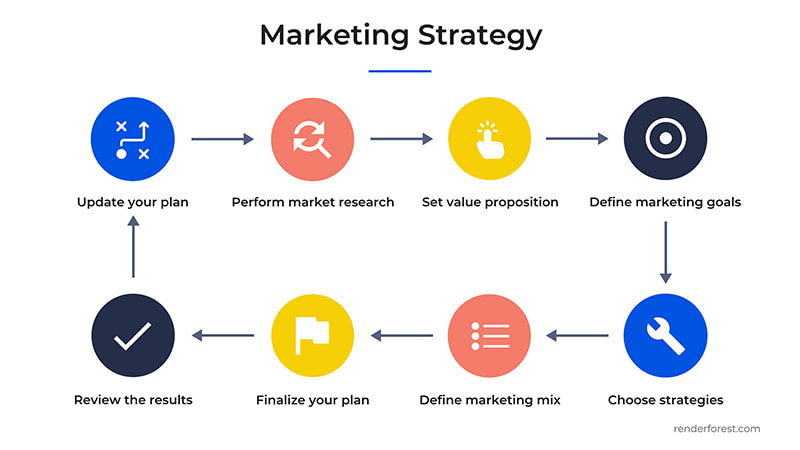
Adjusting Strategies Based on Data
Analyzing and interpreting your metrics allows you to refine your strategy continually. Here’s how you can make informed adjustments:
- Conduct A/B Testing: Utilize A/B experiments to determine what works best for your audience in terms of headlines, calls-to-action, and content formats. Optimizely’s resource on A/B testing provides insights into creating effective tests.
-
Leverage Customer Feedback: Engage with your audience directly through surveys and feedback forms. This qualitative data can offer rich insights into customer preferences and pain points, informing your strategy refinements.
-
Iterate Based on Performance Data: Regularly review your KPIs to identify patterns or anomalies. If certain channels or content types perform consistently well, consider reallocating resources to amplify these efforts.
-
Stay Agile: The digital marketing landscape is dynamic. Stay informed of industry trends and technological advancements to keep your strategies relevant.
In conclusion, the ability to effectively measure and adapt your marketing strategies is a significant competitive advantage for startups. By diligently tracking key metrics and being responsive to data-driven insights, you can ensure your marketing efforts are not only effective but also sustainable in the long term.
Conclusion: Building a Strong Marketing Foundation for Startups
In the rapidly evolving digital landscape, startups must lay a robust marketing foundation to not only survive but thrive. A well-crafted marketing strategy is more than a series of isolated tactics; it’s an integrated framework that guides your business toward achieving its core objectives.
Digital marketing offers startups unparalleled opportunities for growth, allowing them to engage directly with their target audience and build meaningful connections. As highlighted in previous sections, understanding and selecting the appropriate digital marketing channels is crucial. Strategies should be tailored to meet the unique needs of your business, ensuring that your message resonates with your audience and stands out in a crowded marketplace.
Moreover, leveraging social media engagement can significantly enhance brand awareness and customer loyalty. It’s vital to choose the right platforms that align with your brand identity and to create content that genuinely engages and captivates your audience. By doing so, you not only create a strong brand identity but also inspire brand loyalty, crucial for any startup’s long-term success.
A multi-channel approach—combining both traditional and digital marketing strategies—can yield greater returns by reaching audiences at multiple touchpoints. This diversified strategy ensures that a wide array of potential customers are reached, increasing the likelihood of conversion and customer retention.
Critical to the sustainability of any marketing strategy is the ability to measure its success. By monitoring key metrics, startup founders can gain insights into the effectiveness of their efforts and make informed decisions. The importance of adjusting strategies based on data cannot be overstated; it allows for the optimization of campaigns to better achieve goals and maximize return on investment.
Building a strong marketing foundation for startups requires a commitment to continuous improvement and adaptation. As the marketing landscape evolves, so too must your strategies and approaches. By implementing the effective digital techniques and insights outlined in this article, startups can position themselves for substantial growth and enduring success.
To further enhance your understanding of digital marketing strategies for startups, consider exploring resources such as Entrepreneur, which provides additional insights into effective marketing tactics.
